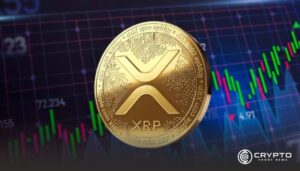- Nigeria’s SEC is cracking down on unregulated crypto firms to ensure investor protection and market stability.
- Only two exchanges, Busha Digital and Quidax, are officially regulated, highlighting the SEC’s effort to bring clarity to the market.
- Global exchanges like Binance face significant challenges navigating Nigeria’s evolving regulatory environment, impacting their operations.
The Nigerian Securities and Exchange Commission (SEC) has taken a decisive step towards regulating the country’s digital asset market by intensifying its crackdown on unregulated cryptocurrency firms. This move is part of the SEC’s ongoing efforts to protect investors and ensure compliance in the rapidly expanding cryptocurrency industry.
SEC Tightens Regulations on Digital Asset Operators
Emomotimi Agama, the SEC’s director-general, emphasized the commission’s commitment to strict enforcement. “We are set to commence enforcement actions against any entity operating in this market without regulatory intent,” Agama stated. This strong stance highlights the SEC’s dedication to safeguarding investors from the risks posed by unregulated activities within Nigeria’s digital asset market.
Limited Number of Regulated Digital Coins in Nigeria
As of now, only two digital exchanges, Busha Digital, and Quidax Technologies, have secured provisional operating licenses from the SEC, issued on August 29. This development marks a crucial step in the SEC’s mission to establish clarity and stability within the country’s digital asset sector.
Navigating Nigeria’s Complex Regulatory Landscape
Nigeria’s approach to digital currency regulation has been marked by inconsistencies, leading to confusion among industry participants. In early 2021, the Central Bank of Nigeria (CBN) imposed a blanket restriction on cryptocurrency transactions, disrupting the market significantly. Although the SEC introduced a regulatory framework in 2022 to provide guidance, the overall regulatory environment remained fragmented.
In late 2023, the CBN lifted its ban on cryptocurrency operations, only to introduce new restrictions in May 2024, limiting peer-to-peer crypto exchanges using the Nigerian naira. These rapid regulatory changes have created challenges for businesses attempting to navigate Nigeria’s complex legislative landscape, raising concerns about the long-term viability of the country’s cryptocurrency market.
Global Crypto Exchanges Face Regulatory Hurdles
The evolving regulatory environment in Nigeria has also posed significant challenges for global cryptocurrency exchanges. In March 2024, Binance, a leading international exchange, announced its withdrawal from the Nigerian market due to these regulatory difficulties. Additionally, Binance’s head of financial crime compliance, Tigran Gambaryan, has been detained since February, with a court decision on his bail expected in October. The SEC’s actions reflect its broader mission to create a secure and transparent trading environment for digital assets in Nigeria.





